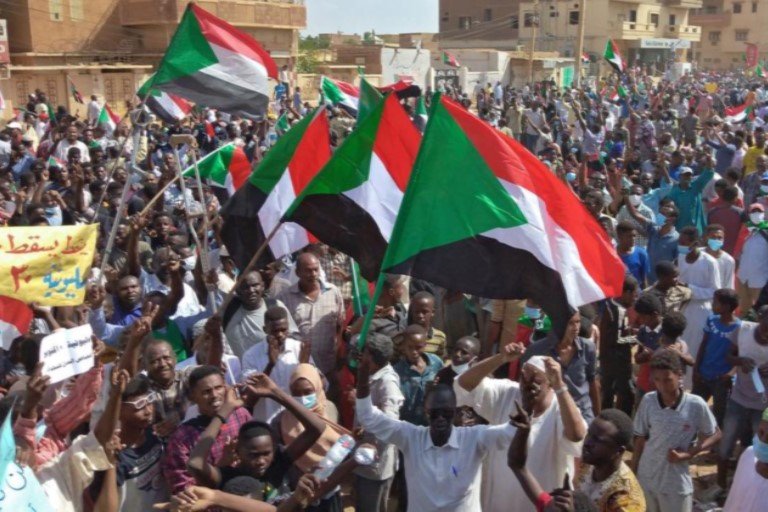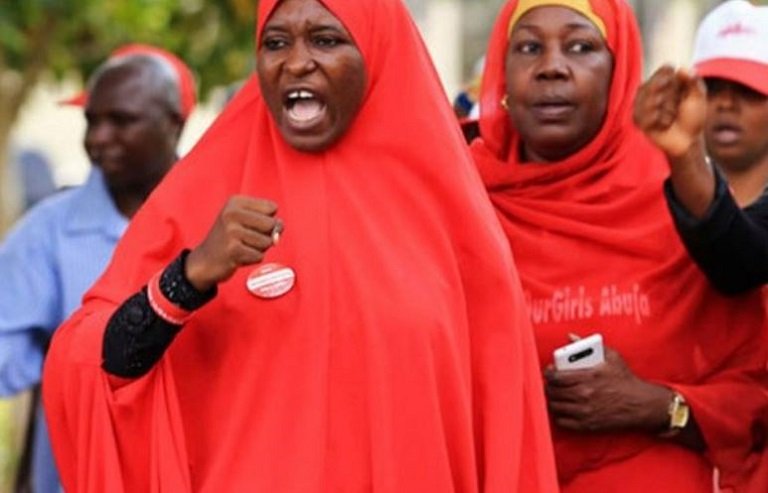Africa
Sudan: Over 1,260 Nigerian students seek evacuation, 330 residents killed

Over 1,260 Nigerian students have petitioned the federal government to evacuate them from the Republic of Sudan, where a major military clash between the Sudanese armed forces and the paramilitary group Rapid Support Force has resulted in 330 fatalities and 3,200 injuries.
In an interview with reporters on Thursday, Adam Mohammed, the secretary-general of the National Association of Nigerian Students, Sudan, bemoaned the fact that many students were out of food.
As the unrest that began on April 8 approached its 12th day on Thursday, hundreds of people have also been forced to flee the capital, Khartoum, as a result of the hostilities. These countries included Tanzania, Uganda, and Japan.
The Sudanese Armed Forces, under the command of General Abdel al-Burhan, and the RSF paramilitary group, headed by General Mohamed Dagalo were allies.
They worked together in 2019 in a popular uprising that overthrew Sudan’s brutal dictator, Omar al-Bashir, who ruled the country for three decades.
After the coup, a power-sharing government was formed, made up of civilian and military groups.
The plan was for the interim government to rule Sudan for a few years and oversee a transition to a civilian administration but in 2021, al-Burhan, who had become chief of the power-sharing council, dissolved it, declaring he would instead hold elections in 2023.
The current fighting broke out between the army and the RSF as a result of failed negotiations over integrating the two forces ahead of the intended restoration of civilian rule.
There was disagreement over which general would be subordinate to the other, and how quickly the RSF would be incorporated into the Sudanese military.
Heavy fighting broke out on April 8, with the cities of Khartoum and Obdurman being turned into battlefields.
Though two ceasefires were agreed upon by the warring factions, both failed to stop the violence.
However, speaking with our correspondent on Thursday, the Secretary-General, NANS in Sudan, Mohammed, said no student had been hurt in the course of the war but he lamented that students were experiencing food shortages, electricity outages, and telecommunication blackouts.
Mohammed disclosed that he had written to the Federal Government about their situation, adding that moves to evacuate the stranded citizens were in top gear.
He further revealed that 1,262 Nigerian students had filled out the evacuation forms as of Wednesday night.
Nigerian embassy
The Secretary-General said, “Everything is under control because the Nigerian Embassy in Sudan has spoken to the Nigerian government and preparations are ongoing. The Nigerian government is trying to send in some planes to evacuate Nigerian students in Sudan.
“Also, the members of the Parent-Guardian Association of Nigeria whose children or wards are schooling in Sudan have spoken to the Chairman of the Nigerians in Diaspora Commission, Abike Dabiri-Erewa to assist in the evacuation of Nigerian students. In summary, the situation concerning the Nigerian students here is under control.
“Presently, none of the Nigerian students in Sudan is hurt because everyone is indoors and they have all cooperated with us. So far, no light, water, bad (telecoms) network, and some students have been complaining of no food and they cannot go out and restock.
“The current number of Nigerian students that filled their forms as of last night that are ready for the evacuation is 1,262.”
Also, the President of the Nasarawa State Students Association in Sudan, Al-Ameen Ahmad, said the students took precautionary measures to avoid being hurt or killed, adding that the association tried its best in providing food to the students.
Ahmad noted that he was in touch with the authorities to facilitate the evacuation of the students, noting that the list of prospective evacuees had been compiled.
He stated, “We do not have available flights to Khartoum. So, we are just going through the processes to see how the government can help evacuate Nigerian students. We have compiled the list of students that want to be evacuated back to Nigeria. We hope things get better.
“Before the Federal Government decided to intervene, we have been taking precautionary measures such as staying indoors to avoid being hurt. From the students’ association, we are using what we have to maintain ourselves and also reach out to others. There are also some supermarkets in safer places. We go there and buy foodstuffs when we know that it is safe, and we share with our colleagues.”
Narrating his ordeal, a student living in Khartoum, Abdullah Zakari, told reporters that the gunshots were terrifying.
Zakari noted, “I am facing hunger because the markets where I stay are closed. We are suffering here. Every now and then, we hear gunshots. I feel insecure because the gunshots have been on for more than a week. Even as a man, it is scary. Things are really hard here. We are facing a lot. Where I stay is very close to the barracks and you can imagine the gunshots.”
Reliving the horrors of the conflict, the President of the International University of Africa in Sudan, Mohammed Jilambu, stated, “The situation here in Sudan is horrible as students have been experiencing the awful sounds of gunshots, artilleries, bombings, the collapse of residential and governmental buildings and it’s still ongoing for almost a week non-stop.
“Most of the residents are leaving the capital city Khartoum to neighboring states. Our students across Khartoum are in terrible condition and we are currently experiencing a shortage of foodstuffs, an electricity blackout for almost a week in some areas, a lack of water, lack of medication for some of our female students who are critically ill. Medical facilities are not accessible; most of the hospitals are closed.
“We are calling on the Nigerian government and humanitarian agencies for immediate support because the situation keeps on escalating on a daily basis.”
On his part, the President of the Jigawa State Students Association in Sudan, Umar Abubakar who lived in Mujahideen, said he initially dismissed the conflict as a protest that would subside after a few days.
Abubakar explained that he was jolted to reality following the escalation of violence and killings of the people by the two parties involved in the clashes.
He said, “At first, I thought the conflict is like the normal protest the Sudanese periodically embark in their quest for democratic representation, but the situation is totally different as innocent citizens are being killed and maltreated as a result of this battle.’’
He added, “Yesterday (Wednesday), around 1 am, I received a call from some sisters that a medical student needed immediate medical attention. I could not reach her because there was no vehicle to take me to the place.
“The sisters around her tried their best to maintain her vitals until morning. We went to five different hospitals and unfortunately, all the hospitals were closed.
“With the help of Almighty Allah, we found one hospital, but there was no single medical doctor. One of the sisters that escorted us cried before the only nurse present in the hospital attended to us.
“I could not find a single pharmacy to buy the prescribed drugs. No pharmacy was open. The RSF (fighters) are everywhere. Everyone is terrified. I saw dead bodies on the ground and no one cared. We are stuck in darkness and our fellows are starving and lack basic items.”
Nigerians safe
In an interview with reporters on Thursday, the Chairman of the Nigerian Community (Elders Forum) in Sudan, Dr. Hashim Na’Allah, stated, “The only challenge Nigerians in Sudan, including students and businessmen face is the lack of movement due to the security situation in Sudan.
“One cannot go to a market like before and only a few traders could be seen at the market which leads to a shortage of food. We received a letter today from the Nigerian Embassy in Sudan to evacuate students and other Nigerians if the situation in Sudan does not improve. The embassy is still monitoring the situation but it is still making plans to evacuate Nigerians back home.”
Speaking with the Voice of America, Hausa Service, Umar Farouk alleged that unlike their counterparts from Niger Republic, Cameroon, and Kenya who were regularly updated on the precarious situation of the war by their respective embassies in Sudan, there was no information from the Nigerian Embassy.
Farouk said all Nigerian students were safe and that even in a university close to a military facility where some of the soldiers entered, nothing untoward happened to the students.
He ruled out the possibility of the over 2000 Nigerian students leaving the country either through the airport or moving to the border with neighboring Egypt, adding that doing so would be difficult as “the airport is already closed for operation.”
“And if we are to move to the border with Egypt, how can such a large number of Nigerian students embark on such a long trip?” he asked.
Meanwhile, Japan, Uganda, and Tanzania have commenced the evacuation of 545 citizens trapped in the deadly war in Sudan.
Japan has sent a military plane to evacuate 60 Japanese citizens while the Tanzanian government is at the point of airlifting 210 nationals.
Also, the Uganda foreign ministry disclosed that it was working to evacuate 275 nationals trapped in Khartoum.
After appraising the situation in Sudan, the Federal Government on Thursday said it had requested permission to evacuate Nigerians, especially students, trapped in the armed conflict.
It also reiterated the call for a ceasefire to enable the evacuation of foreign citizens.
This was contained in a statement signed by the Spokesperson, Ministry of Foreign Affairs, Francisca Omayuli, on Thursday.
The statement read, “The Federal Government is deeply concerned about the escalation of conflict in Sudan between Sudan Armed Forces and the paramilitary group, the Rapid Support Forces, which has brought death and untold suffering to civilians.
“The non-adherence of the warring parties to numerous international calls for a ceasefire has worsened the plight of civilians and made it impossible to embark on their evacuation. Nigeria, therefore, wishes to reiterate the urgent need for an immediate ceasefire.’’
“In the meantime, the Ministry of Foreign Affairs is in contact with the Sudanese authorities and has, through the Nigerian Embassy in Khartoum, made an official request for permission to evacuate Nigerian students and other members of the Nigerian community who may wish to depart the country.
“Additionally, the Nigerian Embassy has created Whatsapp and Telegram platforms for the students and other Nigerians in Sudan, for the purpose of proper coordination and regular updates. Nigerians in the country are advised to remain indoors.”
330 killed
Worried by the escalating hostilities in Sudan, the World Health Organisation has expressed concern over the rising casualties which it put at 330.
The Director-General of WHO, Dr. Tedros Ghebreyesus in a statement on Thursday, also noted that nearly 3,200 people were injured.
Condemning the situation, he stated, “Over 330 people have died so far, and nearly 3200 are injured. I condemn all loss of life, especially attacks on civilians and health care.
“Reports of forces occupying health facilities are also deeply concerning. Attacks on health care are a flagrant violation of international and the right to health – they must stop!’’
“The lack of safe access to electricity, food, water, personnel, and the diminishing medical supplies are making it nearly impossible for many health facilities to function at the exact time when there are thousands injured in need of urgent care,” he noted.
The WHO chief, however, urged all sides to respect the truce so that those trapped by the fighting can seek refuge and access food, water, and medicine.










